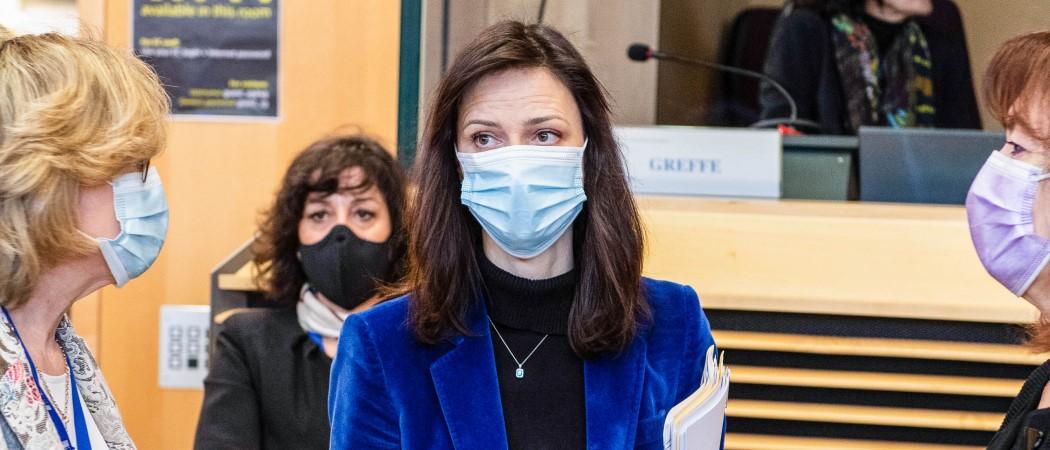The launch of Horizon Europe has been a moving target. Now, MEPs urge the European Commission to make sure delays to the research programme do not affect scientists

EU Commissioner for research and innovation Mariya Gabriel. Photo: EU Commission.
EU Commissioner for research and innovation has dismissed complaints from MEPs that delays in launching the official Horizon Europe work programmes could slow down science and innovation in Europe.
Answering questions at a meeting of the industry and research committee (ITRE) in the European Parliament, Mariya Gabriel said Horizon Europe work programmes, detailing all calls for applications for the next two years, are being finalised and are scheduled for adoption in May, after MEPs rubber-stamp the final bits of legislation in a plenary session scheduled for 26 April.
Czech MEP Martina Dlabajová said the Commission has delayed the implementation of Horizon Europe work programmes, despite the fact that significant parts of the programme were already settled in partial trilateral agreements between the EU Council, Parliament and Commission before the 2019 elections. “There should have been ample time to prepare draft work programmes, and missions and partnerships, yet the work has all been hugely delayed,” said Dlabajová.
Portuguese MEP Marisa Matias asked Gabriel to make sure that “the delays don't have a harmful effect on scientific progress and innovation in Europe.”
Gabriel defended the track record of the Commission and said delays are not significant and researchers will not be affected. “As far as the implementation of programme fluidity is concerned, this is a cross-cutting issue and I would simply like to say that I don't feel that there is that much delay in programme implementation,” Gabriel said.
Horizon Europe legislation is split into two major components. The first part outlines the legal basis and the overall budget needed for the functioning of the programme and was formally approved by all EU institutions in late December after months of political haggling over the EU’s seven-year budget. The second part, which has yet to be approved by the Parliament, details the structure and the objectives of the programme, the forms of EU funding and the rules for providing such funding.
The launch date of Horizon Europe has been a moving target. The programme was scheduled to kick off on 1 January 2021, but the Commission did not formally launch it until a virtual event on 2 February. At that time, detailed work programmes were still unfinished, but rumoured to be public by mid-April. That deadline has shifted again, with EU officials now citing the first half of May.
MEPs say they did their best to ensure a deal on the budget in December and are now unhappy that the Commission was not able to deliver the work programmes faster and reduce the time from legislative approval to disbursing research grants. “We worked hard to get the final agreement in December but it would seem to us that DG Research has not been working as efficiently as it should have,” said Dlabajová.
Both the European Research Council (ERC) and the European Innovation Council (EIC) have already launched the first calls for proposals, thanks to a clause in Horizon Europe legislation which allows the Commission to launch calls and evaluate proposals before the second part of the legislation. But no money can be handed over until parliamentary approval in April.
A dedicated work programme for research on COVID-19 variants will also be adopted this month.
Last week the Commission has also adopted the first Horizon Europe Strategic Plan which sets out key strategic orientations in research and innovation funding for the next four years.
However, researchers and innovators will have to wait until May for other calls for applications to be opened, when the Commission is planning to publish the official work programmes.
The Commission is working “to ensure that implementation of projects doesn't have a negative effect on our research communities,” said Gabriel. “We've now reached the implementing phase of the programme.”





 A unique international forum for public research organisations and companies to connect their external engagement with strategic interests around their R&D system.
A unique international forum for public research organisations and companies to connect their external engagement with strategic interests around their R&D system.